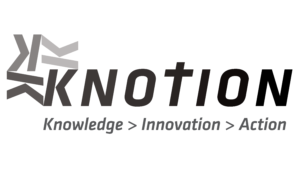Knotion is a South African-based consulting company that specialises in customised training & professional services, tailored around what will best suit your current operational requirements.
Knotion is one of the first companies to present TOGAF® 9.2 internationally. We have trained in South Africa and internationally. Our training is backed up with solid implementation experience.
‘Accomplishment’ is not defined as getting the job done, but as making a real difference for the people and the organisations we serve.
To achieve this vision, Knotion has adopted a value-driven approach to training: Our trainers are architects and rate high in profile tests on their respective people-oriented ratings!
Companies we have trained
We have provided training in South Africa, Australia, Rwanda, Nigeria, Austria, Egypt
“Hands down the best training! Clear and concise description and practical examples!”
Judith van der Linde
(Alexander Forbes)
“If you look for someone who has both the practical and theoretic knowledge, then Knotion is the right option.”
Tahier Saban
(SANTAM)
Our Approach
Our approach ensures maximum value returns:
• Start by clarifying new concepts
• Lay a sound theoretical foundation by covering the concepts in a logical sequence
• Enhance the theoretical understanding through real-life examples
• Practical exercises
• Diverse questioning techniques to test understanding
• Sample exam questions to test knowledge
• Repetition throughout the course to link new knowledge to previous knowledge gained
• Review questions and discussions to ensure the knowledge gained is retained and reinforce previous learning.
Learning Styles
Knotion believes that people learn online through 3 main styles.
Visual learners prefer using pictures, images, and spatial understanding.
We use a variety of tools such as:
• Video clips
• Diagrams & sketches on the board
• Lego building blocks and related material
Verbal learners prefer using words, both in speech and writing.
The tools we use:
• Video clips - humour
• Practical exercises, writing and presenting answers
Aural learners prefer to learn by hearing and listening.
The tools include:
• Video clips
• Real life stories
• Stating what will be learned upfront, cover the topic and then summarise at the end.
Training Methods
Online
Training is performed online, using MS Team, instructor-led but with online convenience. This hands-on training format, offers the structure of a real-time class in a virtual setting.
Video
Video clips are used to contextualise each section of the content. Students are given an introductory video to watch.
Case Studies
Assist in analysing and discussing of real workplace issues. They develop analytical and problem-solving skills, and provideopportunity to practically apply what they have learned.
Group Discussions & Tutorials
Students will be motivated to take part in group discussions. This enables every attendee to voice their ideas and obtain feedback from other students.
Mock Exams
Mock exams are given on the last day to test understanding of the training material and to allow opportunity to ask more questions.
Planned Reading
Through out the course students are given references to additional planned reading.
